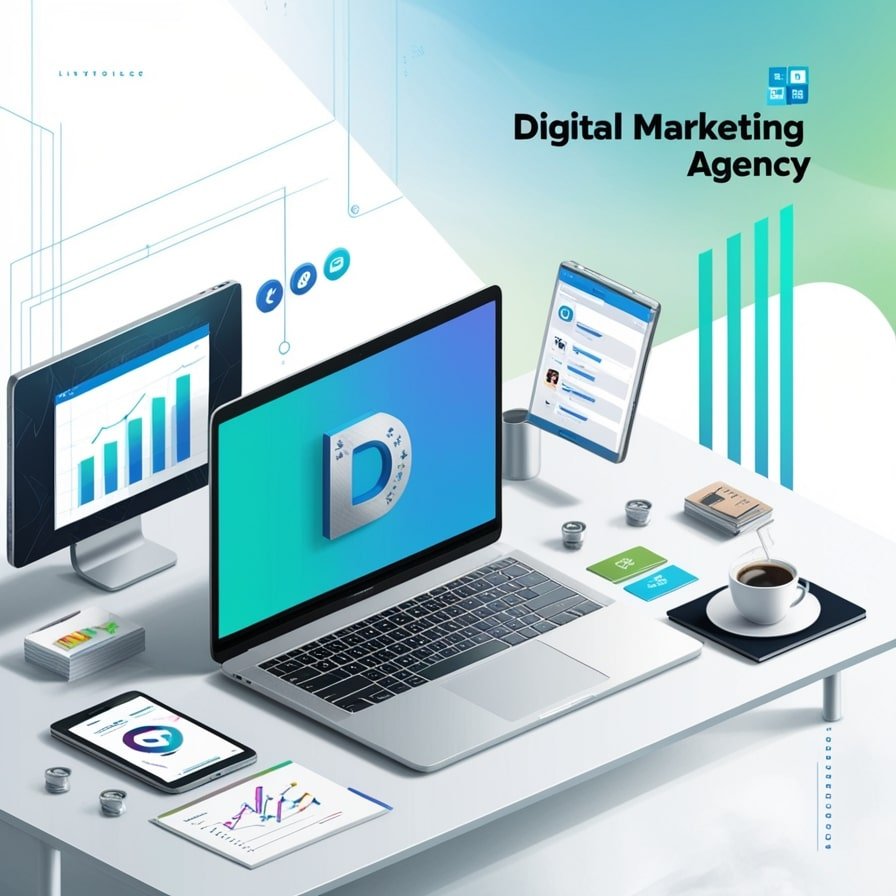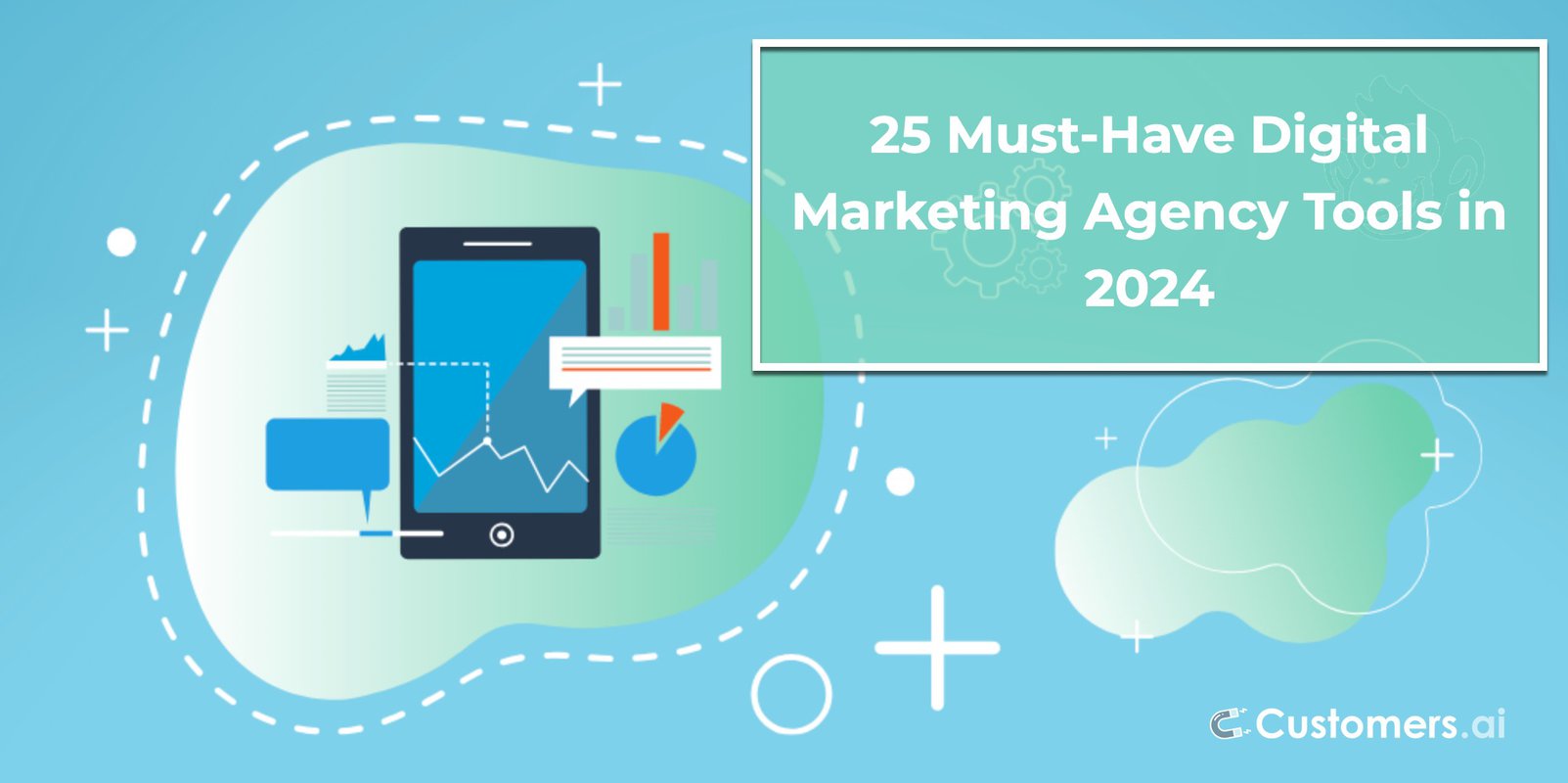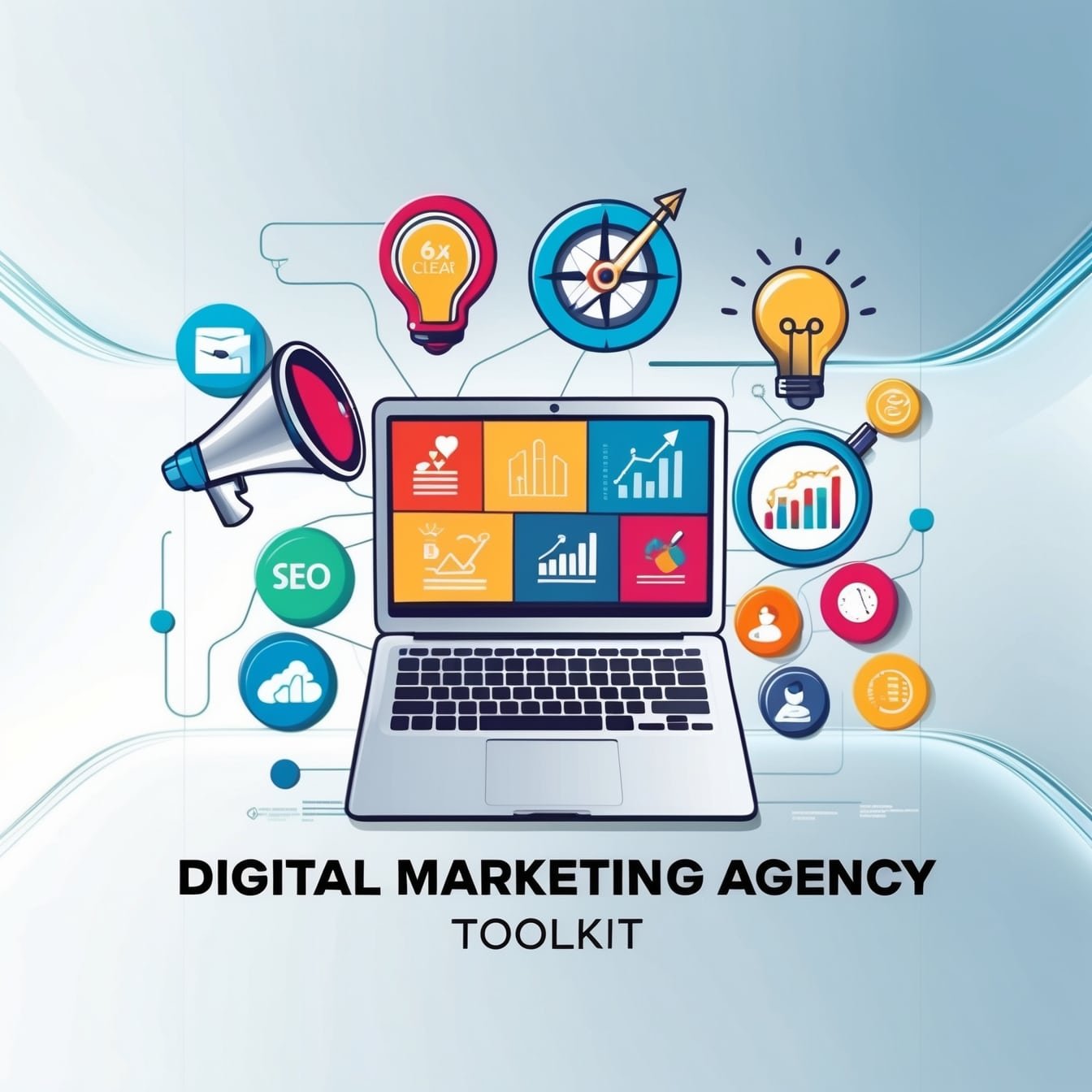In the digital age, marketing agencies need the right tools. They help boost efficiency and results.
Digital marketing agency tools are essential for success in today’s fast-paced world. These tools streamline tasks, improve productivity, and deliver better outcomes. Whether it’s managing social media, analyzing data, or automating email campaigns, having the right toolkit is crucial. With so many options available, it can be overwhelming to choose.
That’s why we’ve created a guide to help you navigate through the best tools out there. This introduction will prepare you to explore the must-have tools that can make a difference in your agency’s performance. Get ready to discover how these tools can elevate your digital marketing efforts and bring measurable success.

Introduction To Digital Marketing Tools
Digital marketing tools are essential for any business looking to thrive online. These tools help you manage, analyze, and optimize your marketing efforts. They provide insights into customer behavior, campaign performance, and much more. With the right tools, you can streamline your processes and achieve better results.
Importance Of Tools
Digital marketing tools are crucial for several reasons:
- Efficiency: They automate repetitive tasks, saving you time and effort.
- Data Analysis: They provide detailed analytics to measure campaign success.
- Customer Insights: They help you understand customer behavior and preferences.
- Optimization: They enable you to fine-tune your strategies for better performance.
Without these tools, it would be challenging to compete in the digital landscape. They allow you to make data-driven decisions and improve your marketing strategies.
Choosing The Right Tools
Selecting the right tools for your digital marketing needs is vital. Here are some factors to consider:
- Business Goals: Identify your objectives to choose tools that align with your goals.
- Budget: Ensure the tools fit within your budget without compromising on quality.
- Ease of Use: Opt for tools that are user-friendly and easy to integrate.
- Support: Look for tools with robust customer support and training resources.
Here is a comparison table of popular digital marketing tools:
| Tool | Purpose | Price |
|---|---|---|
| Google Analytics | Web Analytics | Free |
| Hootsuite | Social Media Management | Paid |
| Mailchimp | Email Marketing | Free/Paid |
| SEMrush | SEO and Competitive Analysis | Paid |
Choosing the right digital marketing tools can significantly impact your business’s success. Make informed decisions based on your needs and resources.
Seo Optimization Tools
SEO optimization tools are essential for digital marketing agencies. These tools help improve website visibility. They drive traffic and increase search engine rankings.
Keyword Research
Keyword research is the foundation of SEO. It’s about finding the right keywords. Tools like Google Keyword Planner and Ahrefs are popular. They help identify high-volume keywords. This makes it easier to target the right audience.
- Identify relevant keywords
- Analyze search volume
- Evaluate competition
On-page Seo
On-page SEO focuses on optimizing individual pages. Tools like Yoast SEO and SEMrush are useful. They help improve content, meta tags, and URLs. This makes the page more search engine friendly.
- Optimize title tags
- Improve meta descriptions
- Ensure proper header tags
Backlink Analysis
Backlink analysis is crucial for SEO success. Tools such as Ahrefs and Majestic are widely used. They help track backlinks. This helps in understanding link-building strategies.
| Tool | Feature |
|---|---|
| Ahrefs | Comprehensive backlink analysis |
| Majestic | Detailed link metrics |
Using these tools, agencies can improve their SEO efforts. They can boost site rankings and drive traffic.
Content Creation Tools
Creating high-quality content is crucial for any digital marketing agency. Whether it’s graphics, videos, or written content, having the right tools can make a big difference. These tools help in producing professional and engaging content efficiently.
Graphic Design
Graphic design tools are essential for creating visually appealing content. Tools like Adobe Photoshop and Canva offer a range of features. They help in designing everything from social media posts to infographics. Photoshop is great for detailed editing. Canva is user-friendly and perfect for quick designs.
With these tools, you can create stunning graphics. This can enhance your brand’s visual appeal. They also offer templates that save time. Templates ensure consistency across all your designs. This is important for maintaining a cohesive brand image.
Video Editing
Video content is more engaging than text or images alone. Tools like Adobe Premiere Pro and Final Cut Pro are popular choices. These tools offer advanced editing features. They help in creating professional-looking videos.
For beginners, tools like iMovie and Filmora are more user-friendly. They offer basic editing features. This makes them suitable for simple video projects. With these tools, you can add effects, transitions, and music. This makes your videos more engaging.
Copywriting
Copywriting tools help in creating compelling written content. Tools like Grammarly and Hemingway App are very useful. Grammarly checks for grammar and spelling errors. Hemingway App helps in improving readability.
There are also tools like Copy.ai and Jasper. These use AI to generate content ideas. They can help in writing blog posts, social media captions, and more. These tools save time and improve the quality of your content.
Social Media Management Tools
Social media management tools are essential for digital marketing agencies. They help manage, schedule, and analyze social media content. These tools save time and improve efficiency. Let’s explore some key features of social media management tools.
Scheduling Posts
Scheduling posts is crucial for consistent social media presence. Tools like Hootsuite and Buffer allow you to plan and schedule posts in advance. This ensures your content goes live at the best times. Here are some benefits:
- Time-saving: Schedule posts for multiple platforms at once.
- Consistency: Maintain a regular posting schedule.
- Reach: Post when your audience is most active.
Scheduling posts also frees up time for other tasks. It helps in maintaining a balanced workload.
Analytics And Reporting
Analytics and reporting tools help track the performance of your social media content. They provide insights into what works and what doesn’t. Key features include:
| Feature | Benefits |
|---|---|
| Performance Metrics | Track likes, shares, comments, and more. |
| Audience Insights | Understand your audience demographics and behavior. |
| Engagement Rates | Measure how well your content resonates with your audience. |
Analytics and reporting tools help in making data-driven decisions. This improves your social media strategy over time.
Engagement Tracking
Engagement tracking tools monitor interactions with your social media content. They help you respond to comments, messages, and mentions in real-time. Benefits of engagement tracking include:
- Improved Customer Service: Respond quickly to customer inquiries.
- Better Relationships: Engage with your audience to build loyalty.
- Reputation Management: Address negative comments promptly.
Engagement tracking tools ensure you never miss an important interaction. They help maintain a positive brand image.
Email Marketing Tools
Are you struggling with managing your email campaigns? Email marketing tools can help. These tools automate tasks, personalize emails, and track performance. Let’s explore some key features of email marketing tools.
Automation
Automation is vital for email marketing. It saves time and ensures timely communication. With automation, you can:
- Send welcome emails to new subscribers.
- Schedule newsletters and updates.
- Trigger emails based on user actions.
Automation tools handle repetitive tasks. This lets you focus on creating engaging content.
Personalization
Personalization increases email effectiveness. Tailoring emails to individual recipients can boost engagement. Personalization features include:
- Using the recipient’s name in the email.
- Recommending products based on past purchases.
- Sending birthday or anniversary emails.
These small touches make your emails feel more personal. Customers appreciate this and are more likely to engage.
Performance Tracking
Tracking performance is crucial. It helps you understand what works and what doesn’t. Key metrics to track include:
- Open rates.
- Click-through rates (CTR).
- Conversion rates.
- Bounce rates.
Many tools provide detailed reports. These reports help you adjust your strategy for better results.
Below is a table summarizing the benefits of these features:
| Feature | Benefit |
|---|---|
| Automation | Saves time and ensures timely communication. |
| Personalization | Increases engagement and customer loyalty. |
| Performance Tracking | Helps improve future campaigns. |
Using these email marketing tools can make a big difference. They streamline processes and enhance customer interaction. Start using them for better results.

Credit: sproutsocial.com
Analytics And Reporting Tools
In the world of digital marketing, analytics and reporting tools are crucial. They help agencies measure performance, understand audience behavior, and make data-driven decisions. These tools provide insights that can improve campaigns and drive better results. Let’s dive into some essential tools for traffic analysis, conversion tracking, and A/B testing.
Traffic Analysis
Traffic analysis tools are vital for understanding your website’s visitors. They reveal where your traffic comes from, which pages are popular, and how users navigate your site. With this data, you can optimize your content and improve user experience. Some popular traffic analysis tools include:
- Google Analytics: Offers detailed insights into traffic sources, user behavior, and more.
- SEMrush: Provides comprehensive traffic analytics and competitive analysis.
- Adobe Analytics: Delivers in-depth data and real-time analytics for large-scale enterprises.
Conversion Tracking
Conversion tracking tools help measure the success of your campaigns. They show how many visitors take desired actions, like making a purchase or filling out a form. This data is crucial for understanding the ROI of your marketing efforts. Key conversion tracking tools include:
- Google Ads Conversion Tracking: Tracks conversions from your Google Ads campaigns.
- Facebook Pixel: Monitors conversions from Facebook ads and optimizes ad performance.
- Hotjar: Provides insights into user interactions with heatmaps and session recordings.
A/b Testing
A/B testing tools are essential for optimizing your marketing strategies. They allow you to test different versions of your content or ads to see which performs better. By analyzing the results, you can make informed decisions and improve your campaigns. Popular A/B testing tools include:
- Optimizely: Offers a robust platform for running A/B tests and experiments.
- VWO: Provides a comprehensive suite for A/B testing, split URL testing, and more.
- Google Optimize: Integrates with Google Analytics for seamless A/B testing and personalization.
Customer Relationship Management (crm) Tools
Customer Relationship Management (CRM) tools are essential for any digital marketing agency. These tools help manage interactions with clients. They also aid in tracking and analyzing client data. This allows agencies to improve client relationships and drive sales growth.
Lead Management
Effective lead management is crucial for converting prospects into customers. CRM tools enable agencies to capture and organize leads. This ensures no potential client slips through the cracks. They can also track the progress of each lead. This helps in determining the best approach for conversion.
Many CRM tools offer lead scoring features. This helps prioritize leads based on their likelihood to convert. Agencies can focus their efforts on high-potential leads. This maximizes their chances of success.
Customer Segmentation
Customer segmentation is the process of dividing customers into groups. These groups share similar characteristics or behaviors. CRM tools make this process simple and efficient. They allow agencies to create custom segments based on various criteria.
For example, agencies can segment customers by demographics, purchase history, or engagement levels. This targeted approach helps in crafting personalized marketing campaigns. Personalized campaigns resonate better with the audience and yield higher results.
Sales Forecasting
Sales forecasting is a vital part of any marketing strategy. CRM tools provide valuable insights into future sales trends. They analyze historical data and current market conditions. This helps agencies make informed decisions.
CRM tools often include predictive analytics features. These features estimate future sales based on past performance. Accurate sales forecasts help agencies allocate resources effectively. They also enable better planning and strategy development.
Below is a summary table of the key features of CRM tools:
| Feature | Description |
|---|---|
| Lead Management | Captures, organizes, and tracks leads to improve conversion rates. |
| Customer Segmentation | Divides customers into groups for targeted marketing efforts. |
| Sales Forecasting | Provides insights into future sales trends and helps in planning. |

Credit: customers.ai
Project Management Tools
Project management tools are essential for any digital marketing agency. They help streamline processes, ensure timely delivery, and enhance team collaboration. Effective project management tools can make a significant difference in productivity and client satisfaction. Let’s explore some critical aspects of these tools.
Task Management
Task management is crucial for keeping projects on track. Tools like Trello and Asana allow teams to break down projects into manageable tasks. Each task can be assigned to a specific team member. This ensures accountability and transparency.
These tools often come with features like due dates, priority settings, and progress tracking. They help teams stay organized and focused. Task management tools also provide a visual overview of the project status. This helps in identifying bottlenecks and reallocating resources efficiently.
Collaboration
Effective collaboration is vital for a digital marketing agency. Tools like Slack and Microsoft Teams facilitate seamless communication. Team members can share updates, discuss ideas, and solve problems in real-time.
These tools also support file sharing and integration with other apps. This ensures that all relevant information is easily accessible. Collaboration tools often include features like channels and direct messaging. These features help in organizing conversations and keeping communication clear.
Time Tracking
Time tracking helps in managing time efficiently. Tools like Toggl and Harvest allow teams to track the time spent on each task. This information is crucial for billing clients accurately and evaluating team performance.
Time tracking tools often come with features like reports, timesheets, and billable hours tracking. These features provide insights into how time is being utilized. They help in identifying areas where efficiency can be improved. Time tracking ensures that projects stay within budget and deadlines are met.
Frequently Asked Questions
What Tools Do Digital Marketing Agencies Use?
Digital marketing agencies use tools like Google Analytics, SEMrush, and Hootsuite. These tools help in analytics, SEO, and social media management.
How Can Semrush Help My Business?
SEMrush helps by providing insights into your competitors’ strategies. It offers keyword research, SEO audits, and backlink analysis.
Why Is Google Analytics Important?
Google Analytics provides detailed insights into website traffic. It helps in understanding user behavior, improving SEO, and enhancing marketing strategies.
What Is The Role Of Hootsuite?
Hootsuite helps in managing multiple social media accounts. It allows scheduling posts, monitoring engagement, and analyzing social media performance.
Conclusion
Digital marketing agency tools simplify and enhance your marketing efforts. They offer efficiency, save time, and improve results. Choosing the right tools can boost your business growth. Regularly update and review your toolset to stay competitive. Always focus on tools that fit your specific needs.
Invest in reliable and user-friendly options. Keep learning and adapting to new technologies. This approach ensures continuous success in your digital marketing journey.

